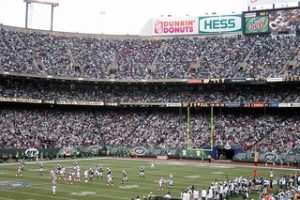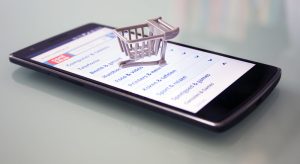8
Luke Dotson
Move the caption info to the main body of the essay. I would encourage an increase in sources and make sure they are incorporated in the chapter. There are places like when the NBA bubble is mentioned where a source would provide more information. Personal statement is powerful.
Introduction
When was the last time that you saw society as being normal since the start of the pandemic? Everyday activities have become inconvenient due to the guidelines and restrictions that the government has set. Since the start of the pandemic, the world has yet to see the normality of daily activities, such as sports, mass gatherings, and shopping, and will likely never see these in their normal form in the foreseeable future.
Connection to STS Theory
The normality of society being affected by COVID is linked to the STS theory of path dependence, which references the decisions of past events that would help shape current choices. Since the pandemic started, no decision has been made that has not had COVID as a conflicting factor. The decisions of every person in the future will be based upon COVID and what it has done to the lives of everyone. Along with the actions of people being affected in the future, COVID also will affect the way the economy plays out. The government will be looking at how bad COVID was for the economy during the lockdown and will base future actions in a way that will save lives and determine whether shutting down the country again will break America to the point of no return, or if it will finally stop the tyranny of COVID.
How COVID has affected sports
The first way that the pandemic is changing the normality of society is through sports. At the start of the pandemic, most sports shut down and canceled all of their events. The ones that continued were known as “biological bombs” due to the great spread of the virus that happened at the games (Gilat 2020). However, as the pandemic continued through the months, many sports started to open back up with various approaches and strategies to have competition but with the least amount of COVID cases to come from them. The two main sporting companies, the NBA and NFL, had two very different approaches. The NBA created a “bubble” in which they made all of the players stay in an enclosed location during the season in order to prevent the spread of COVID. The NFL, however, just tested the players every week. The NBA’s approach proved to be highly effective, with no COVID cases the whole year. Whereas the NFL has had many teams close down for two weeks because of outbreaks. The NBA’s approach seems on the cover tenfold better; however, the NBA did not
allow any fans to the games. This is a bad thing for sports because the central part of sports is the fans, the energy in the stadium, and the social interactions that come from bonding over sports. If more sports follow the lead of the NBA, it only leaves the questions of what will happen to the livelihood of sports. Will fewer fans watch the games? Will colleges and professional teams cut funding and paychecks to still make a profit from the support they still have? AANA states, “Millions have or will lose their jobs, be laid off, or furloughed with the prospects of returning to work at the proper time. That is also true for sports-medicine health care providers and related businesses.” These questions and worries will be answered with time. The world will have to wait and see the impacts and effects that will come from the immense changes in sports.
Voices of Clemson Undergraduate Students
I have met someone in my calculus class that is on blood medication that makes him immunocompromised. This means that he cannot go out and have fun with his friends since COVID has started because of the great risk of dying if he catches COVID.
How COVID has affected large gatherings

The second way that the pandemic has changed society is through large gatherings such as concerts. Since the pandemic engulfed the world, there have been no concerts or any large gatherings. This is not only bad for the economy and the artists but also the American people. Not having social interactions at events like these is not beneficial for the mental health of Americans. Social gatherings bring out happiness and relieve stress from their rough everyday lives. Without being able to go out and experience the fun, many people are left without any relief from their stressful lives. However, there is no good way of introducing concerts back into normality until there is a cure for COVID. Nothing would be safe enough to go back to with the
immense amount of objects that could be contaminated. “Stages, house crews, vans,
hotels, gas stations, bars, liquor bottles and shot glasses backstage — how easy will it
be to make any of those things be considered safe until we have a cure or a guaranteed
treatment?” (Sullivan 2020). There is no way to keep all of these objects sanitary enough to be
safe.
COVID’s effect on online shopping

The last way that the pandemic has altered society is through online shopping.
Before the pandemic, the trend of shopping vs. online shopping was already starting to
lean towards online shopping. However, since the pandemic started, the shopping
market has turned almost totally online. Whether it is grabbing a quick bite or
shopping for clothes, people are more likely to go online to shop because of the easy
convenience. Online shopping plays to the laziness of the American people because it
just takes a couple of clicks with your finger, and all of your shopping is done. The
pandemic has made the shopping industry more of a monopoly now than it was before.
Amazon has taken over the shopping world, and it has left small businesses with barely any customers, which is awful for their sustainability. If COVID does not end within the next year, there will be many small businesses that will be forced to close because they cannot compete against the convenience of Amazon. The University of Pennsylvania stated that the best way for small businesses to withstand the impact of COVID was to “brace for major upheaval in the coming months”(Wharton 2020). The only thing these small businesses can do is sit back and see what their future holds with their
livelihood at the hands of COVID.

Conclusion
There is no normality left in work after COVID. The daily activities that we
once saw as everyday life are now becoming a struggle to carry out. This image shows how much the world has changed in means of shopping. It has turned almost completely into online shopping leaving small business left to rot. There may never
be a normal life after COVID; all that society can do is make the best of what they have
and not let COVID ruin the life that they have now. COVID has affected every aspect of
human life. There is no normality now and maybe ever due to the damage of the
pandemic.
Supplementary Materials
References
Gilat, R., & Cole, B. J. (2020). COVID-19, Medicine, and Sports. Arthroscopy, sports medicine, and rehabilitation, 2(3), e175–e176. Advance online publication.
https://arthroscopysportsmedicineandrehabilitation.org/article/S2666-061X(20)30026-2/fulltext
Sullivan, J. (2020, May 4). What Will The Future Of Concerts Look Like After The Pandemic? | The ARTery. WBUR.Org.
https://www.wbur.org/artery/2020/05/04/coronavirus-pandemic-music-industry-concerts
How COVID-19 Will Change the Way We Shop. (2020, May 8). Knowledge@Wharton.
https://knowledge.wharton.upenn.edu/article/covid-19-will-change-way-shop/
Images
“Shopping trolley with medical mask.” by focusonmore.com is licensed under CC BY 2.0
“NJ – East Rutherford: Giants Stadium – Jets vs. Bills” by wallyg is licensed under CC BY-NC-ND 2.0
“Online shopping” by Robbert Noordzij is licensed under CC BY 2.0

